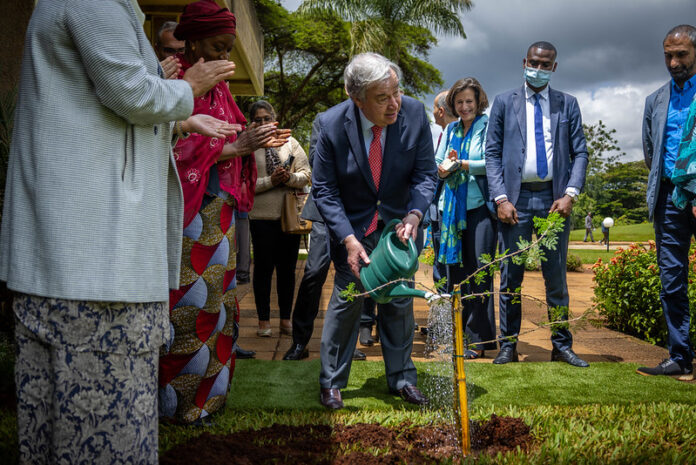By Jackson Okata
Nairobi, Kenya: Climate financing for developing nations is set to dominate discussions as world leaders gather in the Azerbaijan City of Baku for the United Nations Climate Change Conference, otherwise known as COP29.
The summit is expected among other things to discuss how to channel billions of dollars to developing countries grappling with the climate crisis.
Central at the Baku talks will be the new collective and quantified goal on climate finance, which aims to set a target for climate-related financial transfers to developing countries.
The funding is seen as crucial to helping nations to reduce their greenhouse gas emissions and adapt to climate change.
In 2009, when developed countries pledged to provide US$100 billion annually by 2020.
According to UNEP’s Adaptation Gap Report series US$100 billion intended for all climate action is woefully insufficient to cover the required funding for adaptation action
Dechen Tsering, the Acting Interim Director of the Climate Change Division of the United Nations Environment Programme (UNEP) describes it as a sad irony that the developing world, which has done the least to contribute to the climate crisis, bears the brunt of climate disasters and has the least resources to respond
“At COP29, we need to see tangible progress on financing for developing nations, which is essential for ensuring the most vulnerable are not left behind,” says Tsering.
The UNEP’s Emissions Gap Report 2024, warns that without more ambitious cuts to greenhouse gas emissions, the world is on track for a temperature increase of 2.6°C-3.1°C this century, a rise that would be “debilitating” for the planet.
The report says that countries must slash emissions by 42 per cent by 2030 in order to limit global warming to 1.5°C above pre-industrial levels, one of the key goals of the Paris Agreement on climate change.
Discussions on the loss and damage fund, which was launched at COP28 in Dubai last year will also be a key feature at the Baku conference.
The fund is designed to cushion countries suffering from the consequences of climate change, such as the loss of human lives, damage to infrastructure and the failure of crops.
The finer details of the fund need to be established in Baku before the money starts flowing to nations in need.
According to UNEP’s Adaptation Gap Report 2024, international public adaptation finance flows to developing countries increased from US$ 22 billion in 2021 to US$28 billion in 2022, yet that is still a fraction of the US$187-359 billion needed annually in adaptation finance.

In 2025, countries under the Paris Agreement are required to deliver updated plans for how they will reduce greenhouse gas emissions and adapt to climate change.
At COP28 last year, nearly 200 parties vowed to move away from fossil fuels. It marked the first time a COP final decision had mentioned fossil fuels, which are by far the leading driver of the climate crisis.
This year, there are hopes that negotiators will agree on similarly ambitious targets, despite a complex geopolitical backdrop.














